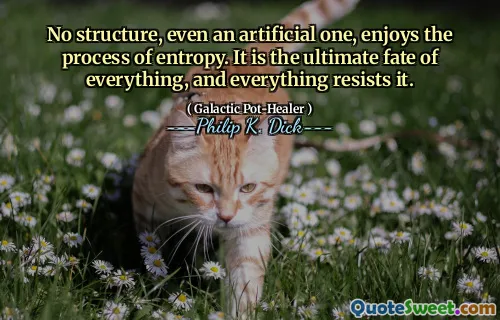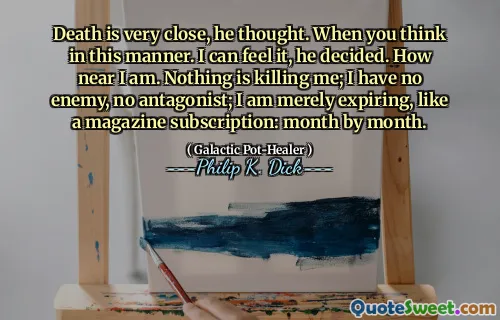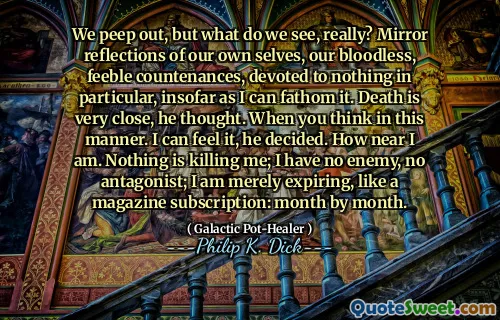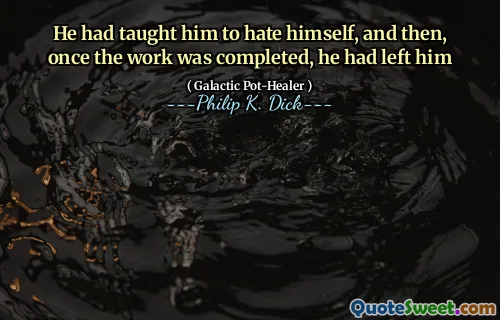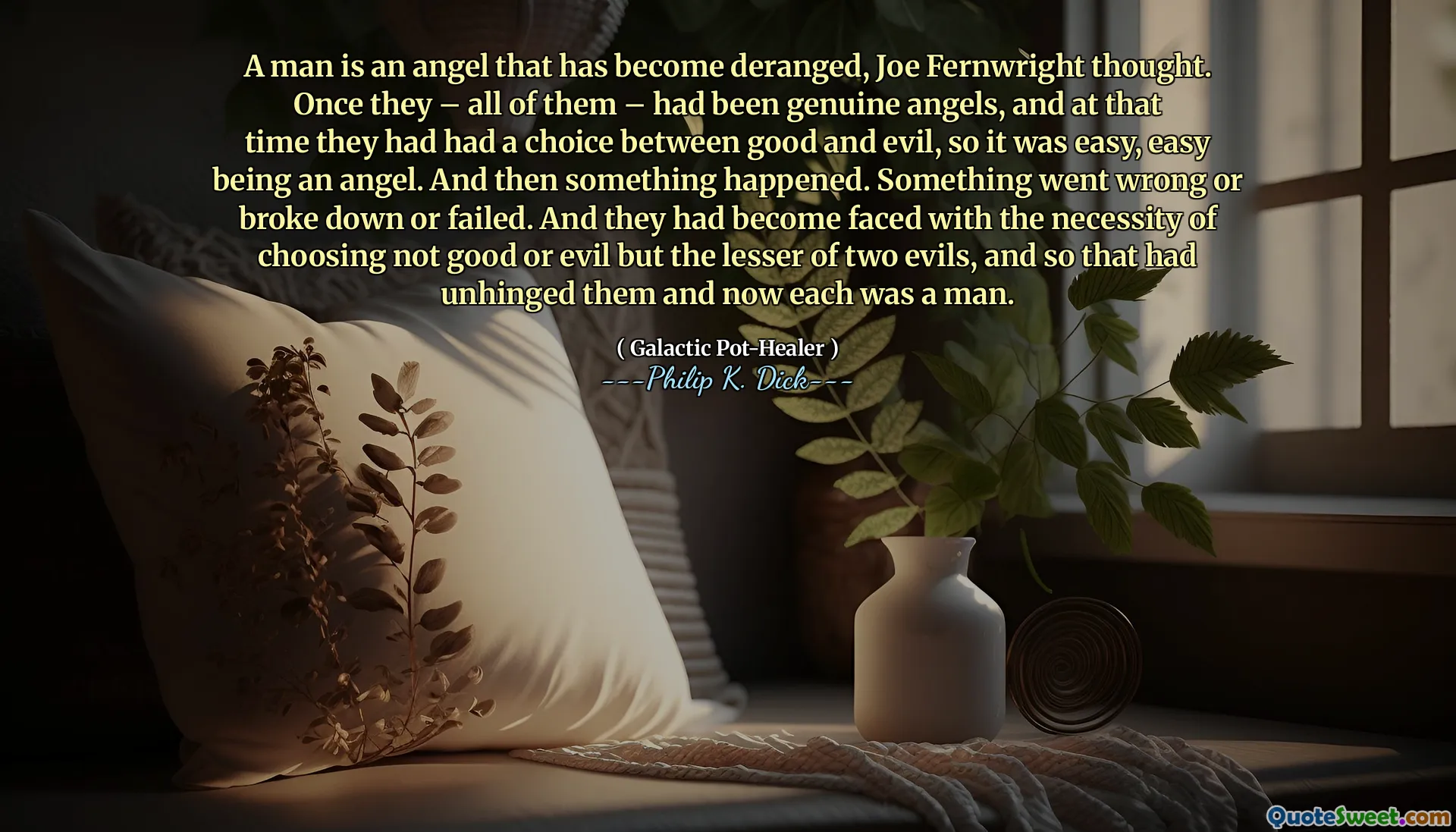
A man is an angel that has become deranged, Joe Fernwright thought. Once they – all of them – had been genuine angels, and at that time they had had a choice between good and evil, so it was easy, easy being an angel. And then something happened. Something went wrong or broke down or failed. And they had become faced with the necessity of choosing not good or evil but the lesser of two evils, and so that had unhinged them and now each was a man.
In Philip K. Dick's "Galactic Pot-Healer," the protagonist Joe Fernwright reflects on the nature of humanity and its fall from grace. He believes that people were once genuine angels, faced with clear choices between good and evil. This simplicity made it effortless to choose the path of righteousness. However, over time, something significant happened that altered this dynamic, leading these beings to confront the dilemma of choosing the lesser of two evils instead.
This shift in circumstances unhinged the angels, transforming them into flawed beings, now living as men. The notion suggests a profound loss of purity and purpose, implying that the complexity of moral choices has driven them to madness. Fernwright's contemplation highlights the tragedy of fallen beings who once knew divinity but are now trapped in a cycle of moral ambiguity and existential struggle.
